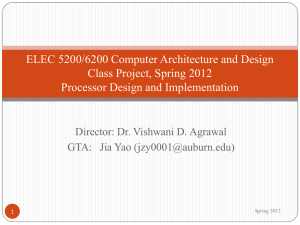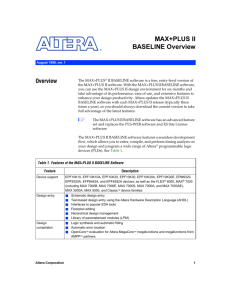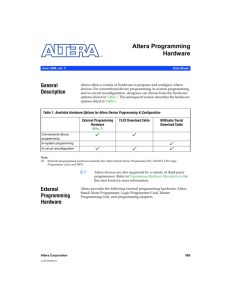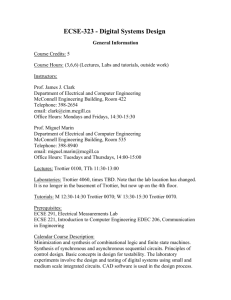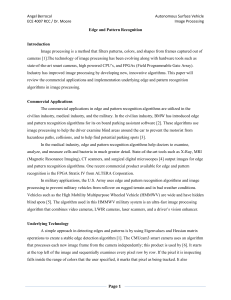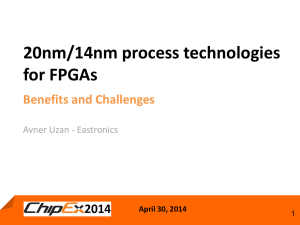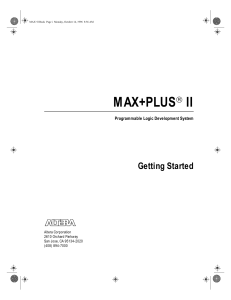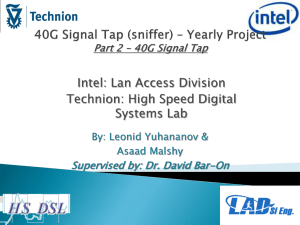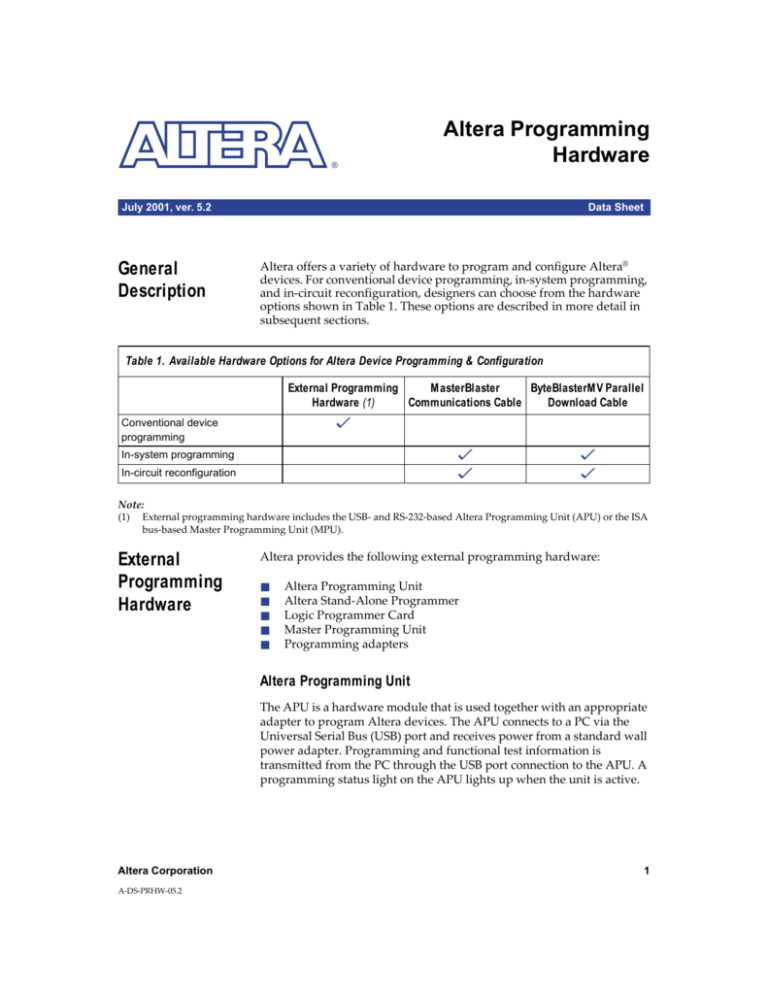
®
Altera Programming
Hardware
July 2001, ver. 5.2
General
Description
Data Sheet
Altera offers a variety of hardware to program and configure Altera®
devices. For conventional device programming, in-system programming,
and in-circuit reconfiguration, designers can choose from the hardware
options shown in Table 1. These options are described in more detail in
subsequent sections.
Table 1. Available Hardware Options for Altera Device Programming & Configuration
MasterBlaster
ByteBlasterMV Parallel
External Programming
Communications Cable
Download Cable
Hardware (1)
v
Conventional device
programming
v
v
In-circuit reconfiguration
v
v
13
Note:
(1)
External programming hardware includes the USB- and RS-232-based Altera Programming Unit (APU) or the ISA
bus-based Master Programming Unit (MPU).
External
Programming
Hardware
Altera provides the following external programming hardware:
■
■
■
■
■
Altera Programming Unit
Altera Stand-Alone Programmer
Logic Programmer Card
Master Programming Unit
Programming adapters
Altera Programming Unit
The APU is a hardware module that is used together with an appropriate
adapter to program Altera devices. The APU connects to a PC via the
Universal Serial Bus (USB) port and receives power from a standard wall
power adapter. Programming and functional test information is
transmitted from the PC through the USB port connection to the APU. A
programming status light on the APU lights up when the unit is active.
Altera Corporation
A-DS-PRHW-05.2
1
Development
Tools
In-system programming
Altera Programming Hardware Data Sheet
When used with the appropriate adapter, the APU automatically tests for
continuity between the device leads and the programming socket before
programming. It can also apply test vectors to functionally test and verify
programmed Altera devices. Test vectors can be created in waveform or
text format in the MAX+PLUS® II Waveform Editor or Text Editor and
applied to the device; results can be viewed in waveform or text format.
The APU will also be supported by the QuartusTM II development
software in the second half of 2001.
Ordering Code:
PL-APU
Altera Stand-Alone Programmer
The Altera Stand-Alone Programmer (PL-ASAP2), together with the
appropriate programming adapters, provides the hardware and software
needed for programming EPROM- and EEPROM-based devices and
configuring SRAM-based devices. PL-ASAP2 includes an LP6 Logic
Programmer Card and MPU, the MAX+PLUS II Programmer software
(which requires Microsoft Windows 98, Windows NT, or Windows 2000),
and complete documentation. The MAX+PLUS II Programmer software
supports device programming for MAX® 9000, MAX 7000, MAX 3000A,
ClassicTM, and configuration devices.
Ordering Code:
PL-ASAP2
Logic Programmer Card
The LP6 Logic Programmer card generates programming waveforms and
voltages for the MPU. The software-controlled card can be installed into
any full-length computer expansion slot in an IBM PC or compatible
computer. The LP6 card is available as part of PL-ASAP2 or individually.
Ordering Code:
PLP6
Master Programming Unit
The MPU is a hardware module that is used together with an appropriate
adapter to program Altera devices. The MPU connects to a Logic
Programmer card via a 25-pin ribbon cable. The MPU receives power
from the Logic Programmer card and does not require an external power
supply. Programming and functional test information is transmitted from
the Logic Programmer card through the USB connection to the MPU. A
programming status light on the MPU lights up when the unit is active.
2
Altera Corporation
Altera Programming Hardware Data Sheet
When used with the appropriate adapter, the MPU automatically tests for
continuity between the device leads and the programming socket before
programming. It can also apply test vectors to functionally test and verify
programmed Altera devices. Test vectors can be created in waveform or
text format in the MAX+PLUS II Waveform Editor or Text Editor and
applied to the device; results can be viewed in waveform or text format.
The MPU is available as part of the PL-ASAP2 or individually.
Ordering Code:
PL-MPU
Programming Adapters
Altera provides three types of programming adapters for Altera devices:
PLM-prefix adapters, PLE-prefix adapters, and the PLAD3-12
compatibility adapter. Each adapter contains one of the following sockets:
a zero-insertion-force (ZIF) dual in-line package (DIP), plastic or ceramic
J-lead (PLCC/JLCC), pin-grid array (PGA), small-outline integrated
circuit (SOIC), or quad flat pack (QFP). Most adapters for QFP devices
with 100 or more pins support Altera’s QFP carriers. Adapters with an
“NC” suffix program QFP devices that are not in a QFP carrier.
For more information, see the QFP Carrier & Development Socket Data Sheet.
Table 2 lists the adapters required for each Altera device and package
option. These adapters are supported by both the PL-APU and PL-ASAP2
programmers.
Table 2. Programming Adapters & Hardware Support (Part 1 of 4)
Device
Package
Note (1)
Adapter
MasterBlaster &
ByteBlasterMV
Support
APEXTM II
All packages
(2)
v
APEX 20K
All packages
(2)
v
MercuryTM
All packages
(2)
v
All packages
(2)
v
MIPS-based Excalibur
All packages
(2)
v
ACEXTM 1K
All packages
(2)
v
FLEX 10K
All packages
(2)
v
FLEX 8000
All packages
(2)
v
FLEX 6000
All packages
(2)
v
(3)
v
ARM-based Excalibur
®
EPC16
Altera Corporation
TM
Ultra FineLine BGA
(88-pin)
TM
3
Development
Tools
f
13
Altera Programming Hardware Data Sheet
Table 2. Programming Adapters & Hardware Support (Part 2 of 4)
Device
Package
Note (1)
Adapter
MasterBlaster &
ByteBlasterMV
Support
EPC2
J-lead (20-pin)
TQFP (32-pin)
PLMJ1213
PLMT1064
v
v
EPC1
DIP (8-pin)
J-lead (20-pin)
PLMJ1213
PLMJ1213
–
–
EPC1441
DIP (8-pin)
J-lead (20-pin)
TQFP (32-pin)
PLMJ1213
PLMJ1213
PLMT1064
–
–
–
EPC1213
DIP (8-pin)
J-lead (20-pin)
PLMJ1213
PLMJ1213
–
–
EPC1064
EPC1064V
DIP (8-pin)
J-lead (20-pin)
TQFP (32-pin)
PLMJ1213
PLMJ1213
PLMT1064
–
–
–
EPM9320
EPM9320A
J-lead (84-pin)
RQFP (208-pin)
PLMJ9320-84
PLMR9000-208NC
PLMR9000-208
PLMR9000-240NC
PLMR9000-240
v
v
v
v
v
PLMJ9400-84
PLMR9000-208NC
PLMR9000-208
PLMR9000-240NC
PLMR9000-240
v
v
v
v
v
PLMR9000-208NC
PLMR9000-208
PLMR9000-240NC
PLMR9000-240
v
v
v
v
PLMR9000-208NC
PLMR9000-208
PLMR9000-240NC
PLMR9000-240
PLMG9000-280
PLMR9000-304
(3)
v
v
v
v
v
v
v
RQFP (240-pin)
EPM9400
EPM9400A
J-lead (84-pin)
RQFP (208-pin)
RQFP (240-pin)
EPM9480
EPM9480A
RQFP (208-pin)
RQFP (240-pin)
EPM9560
EPM9560A
RQFP (208-pin)
RQFP (208-pin)
PGA (280-pin)
RQFP (304-pin)
BGA (256-pin)
4
Altera Corporation
Altera Programming Hardware Data Sheet
Table 2. Programming Adapters & Hardware Support (Part 3 of 4)
Device
Package
Note (1)
Adapter
MasterBlaster &
ByteBlasterMV
Support
J-lead (44-pin)
PQFP (44-pin)
TQFP (44-pin)
PLMJ7000-44
PLMQ7000-44
PLMT7000-44
v
v
v
v
v
EPM7064
EPM7064S
EPM7064AE
EPM7064B
J-lead (44-pin)
TQFP (44-pin)
J-lead (68-pin)
J-lead (84-pin)
Ultra FineLine BGA (49-pin)
PQFP (100-pin)
TQFP (100-pin)
FineLine BGA (100-pin)
PLMJ7000-44
PLMT7000-44
PLMJ7000-68
PLMJ7000-84
(3)
PLMQ7000-100NC
PLMQ7000-100
PLMT7000-100NC
(3)
v
v
v
v
v
v
v
v
v
EPM7096
J-lead (68-pin)
J-lead (84-pin)
PQFP (100-pin)
PLMJ7000-68
PLMJ7000-84
PLMQ7000-100
EPM7128E
EPM7128S
EPM7128A
EPM7128AE
EPM7128B
J-lead (84-pin)
PQFP (100-pin)
PLMJ7000-84
PLMQ7000-100NC
PLMQ7000-100
PQFP (160-pin)
PLMQ7128/7160-160NC
PLMQ7128/7160-160
TQFP (144-pin)
(3)
Ultra FineLine BGA (49-pin) (3)
FineLine BGA (100-pin)
PLMF7000-100
Ultra FineLine BGA (169-pin) (3)
FineLine BGA (256-pin)
PLMF7000-256
v
v
v
v
v
v
v
v
v
v
EPM7160E
EPM7160S
J-lead (84-pin)
TQFP (100-pin)
PQFP (100-pin)
PQFP (160-pin)
PLMJ7000-84
PLMT7000-100NC
PLMQ7000-100
PLMQ7128/7160-160NC
PLMQ7128/7160-160
v
v
v
v
v
EPM7192E
EPM7192S
PGA (160-pin)
PQFP (160-pin)
PLMG7192-160
PLMQ7192/7256-160NC
PLMQ7192/7256-160
v
v
v
Altera Corporation
13
Development
Tools
EPM7032
EPM7032V
EPM7032S
EPM7032AE
EPM7032B
–
–
–
5
Altera Programming Hardware Data Sheet
Table 2. Programming Adapters & Hardware Support (Part 4 of 4)
Device
Package
Note (1)
Adapter
MasterBlaster &
ByteBlasterMV
Support
EPM7256E
EPM7256S
EPM7256AE
EPM7256B
TQFP (100-pin)
TQFP (144-pin)
PGA (192-pin)
PQFP (160-pin)
PLMT7000-100NC
PLMT7000-144NC
PLMG7000-192
PLMQ7192/7256-160NC
PLMQ7192/7256-160
RQFP (208-pin)
PLMR7256-208
PQFP (208-pin)
PLMR7256-208NC
Ultra FineLine BGA (169-pin) (3)
PLMF7000-256
FineLine BGA (256-pin)
v
v
v
v
v
v
v
v
v
EPM7512AE
EPM7512B
TQFP (144-pin)
PQFP (208-pin)
BGA (256-pin)
FineLine BGA (256-pin)
Ultra FineLine BGA (169-pin)
(3)
(3)
(3)
(3)
(3)
v
v
v
v
v
EPM3032A
J-lead (44-pin)
TQFP (44-pin)
PLMJ3000A-44
PLMT3000A-44
v
v
EPM3064A
J-lead (44-pin)
TQFP (44-pin)
TQFP (100-pin)
PLMJ3000A-44
PLMT3000A-44
PLMT3000A-100NC
v
v
v
EPM3128A
TQFP (100-pin)
TQFP (144-pin)
PLMT3000A-100NC
PLMT3000A-144NC
v
v
EPM3256A
TQFP (100-pin)
PQFP (208-pin)
PLMT3000A-100NC
PLMQ3000A-208NC
v
v
EP600
EP610
DIP (24-pin)
J-lead (28-pin)
SOIC (24-pin)
PLED610
PLEJ610
PLES610
–
–
–
EP900
EP910
DIP (40-pin)
J-lead (44-pin)
PLED910
PLEJ910
–
–
EP1810
J-lead (68-pin)
PGA (68-pin)
PLMJ1810
PLEG1810
–
–
Notes:
(1)
(2)
(3)
6
Adapters with an NC suffix program QFP devices that are not in QFP carriers.
Configuration of Excalibur, Mercury, APEX II, APEX 20K, ACEX 1K, FLEX 10K, FLEX 8000, or FLEX 6000 devices
is supported by configuration devices (EPC1064, EPC1064V, EPC1213, EPC1, EPC1441, EPC2, and EPC16), and the
MasterBlasterTM or ByteBlasterMVTM download cable.
A MasterBlaster or ByteBlasterMV download cable is used to program this device via in-system programming. For
the latest adapter support for this package, go to the Altera web site (http://www.altera.com) or contact a local
Altera sales office.
Altera Corporation
Altera Programming Hardware Data Sheet
PLM-Prefix Adapters
The PLM-prefix adapters plug directly into the APU or MPU. Each
adapter provides programming support for a specific device package.
Additionally, PLM-prefix adapters (except the PLMJ1213 and PLMT1064)
support functional testing of programmed Altera devices. The PLMJ1213
and PLMT1064 adapters can program the configuration devices used to
configure Excalibur, Mercury, APEX II, APEX 20K, ACEX 1K, FLEX 10K,
FLEX 8000, and FLEX 6000 devices.
PLE-Prefix Adapters
The PLE-prefix adapters plug into the PLAD3-12 compatibility adapter,
which in turn plugs into the APU or MPU. Each PLE-prefix adapter
provides programming support for a specific Classic device.
PLAD3-12 Compatibility Adapter
The PLAD3-12 compatibility adapter plugs directly into the APU or MPU.
This compatibility adapter allows PLE-prefix adapters to be used with the
APU. See Table 2 on page 3.
MasterBlaster
Download
Cable
PLExxxx, PLMxxxx, PLAD3-12
The MasterBlaster download cable is a hardware interface to either a
standard PC or UNIX workstation RS-232 port (known as a “COM port”
on a PC and a “ttya port” on a UNIX workstation) or a USB port. It
provides configuration data to Excalibur, Mercury, APEX II, APEX 20K,
ACEX 1K, FLEX 10K, FLEX 8000, and FLEX 6000 devices and
programming data to MAX 9000, MAX 7000S, MAX 3000A, MAX 7000B,
and MAX 7000A devices.
The 25-pin female port on the MasterBlaster download cable connects to
an RS-232 port with a standard serial cable, or the MasterBlaster can
connect to a USB port. The 10-pin female plug on the MasterBlaster
download cable connects to a device on a circuit board via a 10-pin male
header. The MasterBlaster cable contains status lights that indicate the
state of the device configuration or programming. The MasterBlaster
supports the SignalTap® feature, which allows designers to view internal
device logic nodes with a virtual logic analyzer.
Ordering Code:
f
Altera Corporation
PL-MASTERBLASTER
For more information, refer to the MasterBlaster Serial Download Cable Data
Sheet.
7
Development
Tools
Ordering Codes:
13
Altera Programming Hardware Data Sheet
ByteBlasterMV
Parallel
Download
Cable
The ByteBlasterMV parallel download cable is a hardware interface to a
standard parallel port (also known as an LPT port). This cable channels
configuration data to Excalibur, Mercury, APEX II, APEX 20K, ACEX 1K,
FLEX 10K, FLEX 8000, and FLEX 6000 devices and programming data to
MAX 9000, MAX 7000S, MAX 7000B, MAX 7000A, and MAX 3000A
devices.
The ByteBlasterMV download cable has a 25-pin male header that
connects to the PC parallel port, and a 10-pin female plug that connects to
the circuit board. Data is downloaded from the PC’s parallel port through
the ByteBlasterMV cable to the circuit board.
To configure/program low-voltage devices (e.g., APEX 20K and
MAX 7000B devices) using a ByteBlasterMV download cable, connect the
cable’s VCC pin to a 3.3-V power supply and the device to the appropriate
power supply. Altera 1.8-V and 2.5-V devices have 3.3-V tolerant inputs,
so the download cable’s 3.3-V output will not harm these devices. The
pull-up resistors should be connected to the 3.3-V power supply.
Ordering Code:
f
Programming
Techniques
PL-BYTEBLASTERMV
For more information, see the ByteBlasterMV Parallel Download Cable Data
Sheet.
Table 3 summarizes Altera device programming/configuration
techniques.
Table 3. Programming/Configuration Techniques by Device Family (Part 1 of 2)
Device Family
Programming/Configuration Techniques
Excalibur
Mercury
APEX II
APEX 20K
ACEX 1K
FLEX 10K
Download configuration data via the MasterBlaster or ByteBlasterMV download
cable, or an embedded microprocessor using the JTAG ports
Excalibur
Mercury
APEX II
APEX 20K
ACEX 1K
FLEX 10K
FLEX 8000
FLEX 6000
In passive serial (PS) mode, download configuration data via the MasterBlaster
or ByteBlasterMV download cable
8
Configure devices via an on-board microcontroller
Altera Corporation
Altera Programming Hardware Data Sheet
Table 3. Programming/Configuration Techniques by Device Family (Part 2 of 2)
Device Family
Programming/Configuration Techniques
Excalibur
Mercury
APEX II
APEX 20K
ACEX 1K
FLEX 10K
FLEX 6000
Configure via an EPC2, EPC1, or EPC1441 configuration device
FLEX 8000
Configure via an EPC1, EPC1441, EPC1213, EPC1064, or EPC1064V
configuration device
MAX 9000
MAX 7000A
MAX 7000B
MAX 7000S
MAX 3000A
Program devices in-system via the MasterBlaster or ByteBlasterMV download
cable and the JTAG ports
MAX 7000
Classic
Program using the MPU and the appropriate adapters
Program via third-party programming hardware
Program in-system via in-circuit test (ICT) equipment or an on-board
microcontroller
13
Program using third-party programming hardware
The information contained in the Altera Programming Hardware Data Sheet
version 5.1 supersedes information published in previous versions.
The following changes were made to the Altera Programming Hardware
Data Sheet version 5.1:
■
■
Altera Corporation
Added APEX II content
Text addition to Note (3) on page 6
9
Development
Tools
Revision
History
Program via the MPU and the appropriate adapters
Altera Programming Hardware Data Sheet
Notes:
10
Altera Corporation
Altera Programming Hardware Data Sheet
Notes:
Altera Corporation
11
Altera Programming Hardware Data Sheet
®
101 Innovation Drive
San Jose, CA 95134
(408) 544-7000
http://www.altera.com
Applications Hotline:
(800) 800-EPLD
Customer Marketing:
(408) 544-7104
Literature Services:
lit_req@altera.com
Altera, ACEX, APEX, APEX 20K, APEX II, ByteBlasterMV, Classic, Excalibur, FLEX, FLEX 10K, FLEX 8000,
FLEX 6000, MasterBlaster, MAX, MAX 9000, MAX 9000A, MAX 7000, MAX 7000A, MAX 7000S, MAX 3000,
MAX 3000A, MAX+PLUS, MAX+PLUS II, Quartus, Quartus II, SignalTap, and specific device designations are
trademarks and/or service marks of Altera Corporation in the United States and other countries. Altera
acknowledges the trademarks of other organizations for their respective products or services mentioned in this
document. Altera products are protected under numerous U.S. and foreign patents and pending applications,
maskwork rights, and copyrights. Altera warrants performance of its semiconductor products to current
specifications in accordance with Altera’s standard warranty, but reserves the right to make changes to any
products and services at any time without notice. Altera assumes no responsibility or
liability arising out of the application or use of any information, product, or service
described herein except as expressly agreed to in writing by Altera Corporation. Altera
customers are advised to obtain the latest version of device specifications before relying on
any published information and before placing orders for products or services.
Copyright 2001 Altera Corporation. All rights reserved.
12
Altera Corporation
Printed on Recycled Paper.


